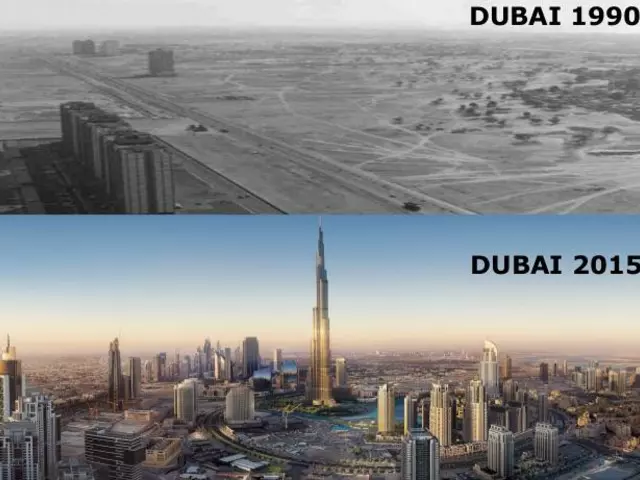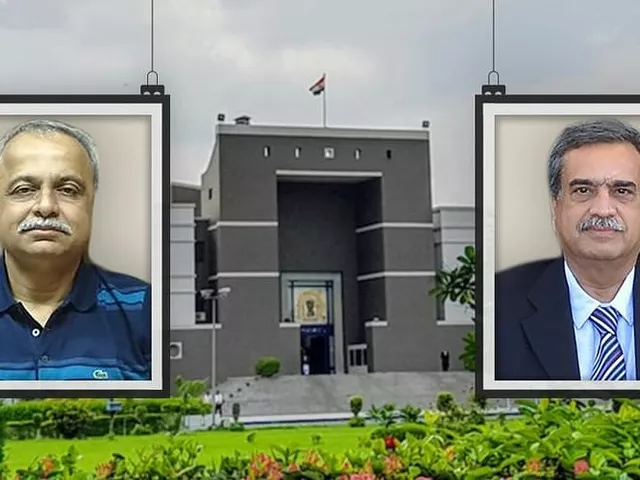31 Jan
|
12:25 PM
|
0

Exploring the Impact of Prime Minister Modi's Policies on Political Dynasties in India
Since assuming office in 2014, Indian Prime Minister Narendra Modi has been credited with ushering in a new era of political and economic reforms. One of those reforms has been his focus on dismantling the long-standing political dynasties that have come to dominate Indian politics. Modi's anti-dynasty policies have had a profound impact on the country's political landscape, and many have credited him with helping to strengthen India's democracy by cutting the power of these entrenched dynasties.In recent years, Modi has implemented numerous measures to reduce the influence of political dynasties. He has made it more difficult for family members to hold multiple posts in government, making it illegal for two relatives to be elected to the same constituency. He has also tightened the rules surrounding party funding to limit the amount of money that political dynasties can receive from private donors.
In addition to these measures, Modi has also sought to reduce the influence of dynasties in decision-making at the highest levels of government. He has appointed a number of independent advisors to advise on key policy decisions, rather than deferring to the views of traditional powerbrokers. Moreover, he has sought to reduce the power of dynasties in the selection of cabinet ministers, instead relying on merit-based selection procedures.
It is clear that Modi's anti-dynasty policies have had a significant impact on India's political landscape. The dismantling of dynasties has opened up opportunities for more independent political figures to rise up the ranks and make their voices heard in the corridors of power. As a result, India's democracy appears to be stronger than ever before, with more people having the ability to participate in the decision-making process.
While Prime Minister Modi has been credited with taking a strong stance against political dynasties, it is too early to definitively conclude that he is their biggest enemy. Nevertheless, his policies have certainly had a major impact on India's political landscape and have helped to create an environment in which more independent voices can make their presence felt.
Examining the Role of Prime Minister Modi in Challenging Political Dynasties in India
Prime Minister Narendra Modi of India has been a major proponent of curtailing the influence of political dynasties in India. This has been a major priority of his since his election in 2014 and has been a major part of his campaign rhetoric. He has often spoken out against the “old-guard” of the country which has been responsible for keeping India’s political dynasties in power for generations.Prime Minister Modi’s agenda to challenge political dynasties in India is twofold. Firstly, he has implemented policies and laws which attempt to reduce the power of political dynasties. This includes the introduction of a new anti-corruption law which attempts to limit the ability of political dynasties to use their positions of power for personal gain. It also includes measures to ensure that those seeking public office must pass a series of tests which demonstrate their capabilities and qualifications for office.
The second part of Prime Minister Modi’s agenda is to encourage the growth of new leaders in the country who are not from political dynasties. This includes promoting education, job opportunities, and other programs which allow those from lower-income families to have a chance at achieving success in India. Prime Minister Modi has also been a vocal advocate for women’s rights in India and has implemented initiatives which promote gender equality and empower women politically.
The efforts of Prime Minister Modi have certainly been beneficial in challenging the influence of political dynasties in India. However, the real test of his success will be in the upcoming elections. If Prime Minister Modi can continue to build support among the people of India and encourage the growth of new leaders, then he may have a chance of defeating the political dynasties in India and ushering in a new era of democracy and progress.
How Prime Minister Modi is Working to End Political Dynasties in India
Prime Minister Narendra Modi of India has been a vocal opponent of political dynasties, which many people say are a big hindrance to democracy in the country. In the last five years, the Prime Minister has taken several steps to reduce the influence of political dynasties in India.One of the biggest steps taken by the Prime Minister has been to introduce the anti-defection law. This law makes it difficult for members of the same family to be elected to the same office consecutively. This means that if a family member is in office, another family member cannot stand for the same seat in the next election.
In addition, the Prime Minister has also made it mandatory for political candidates to declare their criminal records, assets and liabilities. This has helped to weed out political dynasties and those with criminal backgrounds from the electoral process.
The Prime Minister has also encouraged more people from diverse backgrounds to join politics. He has implemented a number of initiatives to promote the political and economic participation of women, youth, Dalits and OBCs. He has also been encouraging more people from the private sector to join politics in order to bring fresh perspectives to the political landscape.
Finally, Prime Minister Modi has also been trying to introduce more transparency in the electoral process. He has launched several initiatives such as the Electronic Voting Machines and the National Electoral Roll Purification and Authentication Programme in order to reduce the influence of money power and political dynasties in the electoral process.
Overall, Prime Minister Modi has been working hard to reduce the influence of political dynasties in India. His efforts have been praised by many and have helped to bring more people from diverse backgrounds into politics.
Is Prime Minister Modi the Biggest Enemy of Political Dynasties in India?
The election of Narendra Modi as Prime Minister of India in 2014 was seen as a major victory for democracy in the country. Modi has made a point of speaking out against political dynasties, and has promised to work towards breaking them up. But is he really the biggest enemy of political dynasties in India?There are certainly some indications that Modi has been successful in his efforts to break up political dynasties. In the last five years, the BJP has done away with the hereditary rule of several prominent families, including the Gandhis in the Congress party, the Yadav family in Uttar Pradesh, and the Badals in Punjab. Many of these families had been in power for decades, and their removal from power has been seen as a victory for democracy.
At the same time, there are still many political dynasties in India that remain in power, and it is unclear whether Modi has been successful in his efforts to break them up. In some cases, it appears that Modi has been successful in weakening these dynasties, but they still remain in power.
Ultimately, it is hard to say whether Modi is the biggest enemy of political dynasties in India. What is certain is that he has made a point of speaking out against them, and has been successful in weakening some of the most powerful dynasties in the country. Whether this will be enough to break them up completely remains to be seen.
Analyzing the Impact of Prime Minister Modi's Anti-Political Dynasty Stance on India's Democracy
The idea of political dynasties has been part of the Indian political landscape for many decades, with members of the same family often dominating political parties and state governments. Prime Minister Narendra Modi has recently taken a strong stance against this practice, vowing to break the grip of dynastic politics on India’s democracy. But what impact has this stance had on India’s democracy?In the past, political dynasties have been a major barrier to the development of democratic institutions in India. They have often been accused of creating an unhealthy atmosphere of nepotism and patronage, with politicians using their family connections to secure important posts and resources for their relatives and friends. This has meant that talented individuals from outside the political dynasties have been sidelined, and the country has been deprived of their contributions.
However, Prime Minister Modi’s anti-dynastic stance has led to a shift in the political landscape. For the first time, politicians from outside the dynasties are being given important portfolios, and the level of competition in elections has increased significantly. This has created a more level playing field, and has allowed for greater representation of different political opinions.
In addition, the Prime Minister’s stance has also led to increased scrutiny of the actions of dynastic politicians. Many of them have been forced to answer tough questions on their political conduct and have been held accountable for their actions. This has helped to reduce the power of dynastic politicians, and has resulted in a more transparent political system.
Overall, Prime Minister Narendra Modi’s stance against political dynasties has had a positive impact on India’s democracy. By breaking the grip of dynastic politics, he has allowed for greater representation of different political opinions and has increased the level of competition in elections. Moreover, he has also helped to reduce the power of dynastic politicians, creating a more transparent and accountable political system.



